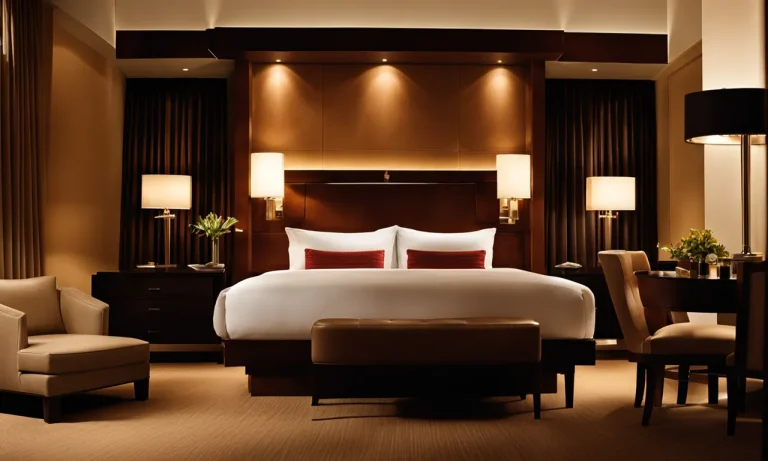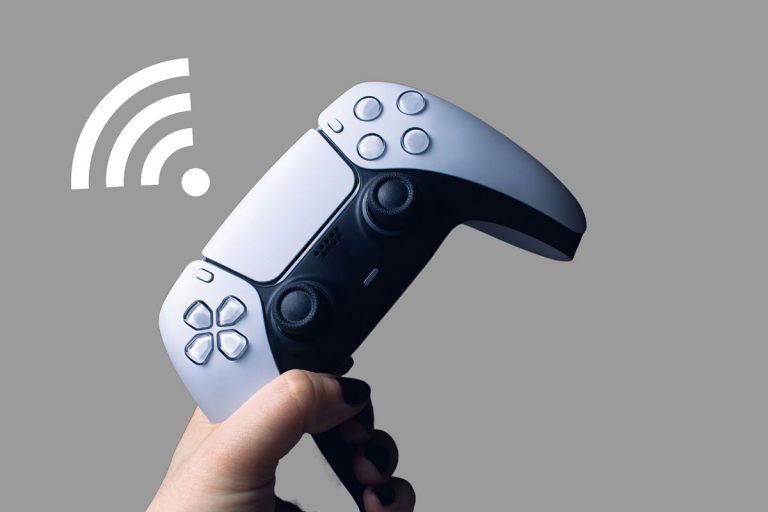In the realm of hospitality services, understanding financial transactions, specifically, how and when a hotel charges your credit card, is crucial for a hassle-free experience. This process can often seem confusing due to varying policies across different hotels and the inclusion of pre-authorizations, additional services, and final billing.
An understanding of these procedures not only helps to ensure seamless transactions but also equips guests to manage their finances effectively during their stay. This exploration will provide a comprehensive insight into the timeline of credit card charges in a hotel, helping to clarify common questions and misconceptions.
Credit card pre-authorization at hotels
When you check into a hotel, you are typically required to provide a credit card for incidentals, such as room service or damage to the room. In addition to this requirement, many hotels also place a pre-authorization hold on your credit card.
How does a pre-authorization on your credit card work for hotel reservations?
by u/Aexil in travel
Definition and purpose
A credit card pre-authorization is a temporary hold placed on your credit card to ensure that funds are available for any charges that may be incurred during your stay. The purpose of this hold is to protect the hotel from losses and to ensure that guests have sufficient funds to cover any additional charges.
Factors affecting pre-authorization amount
The amount of the pre-authorization hold can vary depending on the hotel’s policy and the length of your stay. Typically, the hold is for the full cost of the room plus an additional amount for incidentals. The additional amount can range from $50 to $200 per day, depending on the hotel’s policy and the length of your stay.
Other factors that can affect the pre-authorization amount include the type of room you have booked, the number of guests in the room, and the hotel’s location. For example, a hotel in a high-end area may have a higher pre-authorization amount than a hotel in a less expensive area.
Timeline of pre-authorization process
The pre-authorization hold is typically placed on your credit card at the time of check-in. The hold will remain on your account until you check out, at which time the final amount of your charges will be charged to your credit card. The release of the hold may take several days, depending on your bank’s policy.
If you use a debit card for the pre-authorization hold, the funds may be temporarily unavailable in your account until the hold is released. This can be inconvenient if you need to use the funds for other purposes.
It is important to keep in mind that the pre-authorization hold is not an actual charge, but rather a temporary hold on your credit card. If you have any questions about the pre-authorization process, it is best to contact the hotel directly or consult their website for more information.
Charging upon check-in and during the stay
When you check in at a hotel, you will usually be asked to provide a credit card for incidentals. This is to cover any additional charges you may incur during your stay, such as room service, minibar purchases, or damage to the room. The hotel will typically authorize your credit card for the total amount of your stay plus an additional amount for incidentals.
Procedures and Timing
The timing of when the hotel charges your credit card can vary depending on the hotel’s procedures. Some hotels will charge your credit card for the full amount of your stay at check-in, while others will place a hold on your card for the full amount and then charge you when you check out. Some hotels may charge your card periodically during your stay to cover any additional charges.
It’s important to ask the hotel about their specific procedures for charging credit cards and to read the fine print on any agreements or contracts you sign upon check-in. This will help you avoid any surprises or misunderstandings about when and how your credit card will be charged.
Additional Charges
In addition to incidentals, there may be additional charges that the hotel will put on your credit card. For example, some hotels may charge a resort fee or parking fee that is not included in the room rate. These charges may be added to your bill at check-out or periodically during your stay.
If you have any questions about additional charges or fees, be sure to ask the hotel staff before you check in. It’s also a good idea to review your credit card statement after your stay to ensure that you were only charged for what you agreed to.
Final charge upon check-out
When you check into a hotel and provide your credit card details, the hotel may place a hold on your card to cover the room rate and any incidental charges you may incur during your stay. However, the actual charge for your stay will typically occur upon check-out.
Check-out process and final billing
During the check-out process, the hotel will calculate your total bill, which may include charges for room rates, taxes, fees, and any additional services you used during your stay, such as room service, spa treatments, or mini-bar purchases. The hotel will then charge your credit card for the total amount due.
Time frame for final charge
The time frame for the hotel to charge your credit card for the final amount depends on the hotel’s billing cycle and policies. Some hotels may charge your card immediately upon check-out, while others may take a few days to process the payment. You can usually find information about the hotel’s billing policies on their website or by contacting the front desk.
Understanding itemized charges
When you receive your final bill, it should include an itemized breakdown of all charges. It’s important to review the bill to ensure that all charges are accurate and that you understand what each charge is for. If you have any questions or concerns about the charges, don’t hesitate to ask the front desk for clarification.
It’s also a good idea to keep a copy of your final bill for your records, in case there are any discrepancies or disputes over the charges.
Tip: To avoid any surprise charges at check-out, ask the hotel about their policies for incidental charges and if they place any holds on your card.
Post-checkout adjustments and refunds
When you check out of a hotel, you may notice that the final charged amount on your credit card statement is different from what you expected. This could be due to post-checkout adjustments or refunds that the hotel needs to make to your bill.
Possible adjustments
There are several reasons why a hotel might need to make adjustments to your bill after you check out:
- Additional charges: If you used any of the hotel’s services or amenities during your stay, such as room service or a spa treatment, these charges may not be included in your initial bill and will be added later.
- Room damage: If you caused any damage to your hotel room during your stay, such as breaking a lamp or staining the carpet, the hotel may charge you for the repair or replacement.
- Disputes: If there is a dispute over the charges on your bill, the hotel may need to investigate further before making any adjustments or refunds.
If you notice any unexpected charges on your credit card statement, it’s a good idea to contact the hotel to ask for an explanation.
Processing timeline
The timeline for post-checkout adjustments and refunds can vary depending on the hotel’s policies and procedures. Some hotels may process these adjustments immediately, while others may take several days or even weeks.
It’s also important to keep in mind that your bank or credit card company may have their own processing timeline for these transactions. In some cases, it may take several days or even longer for the refund or adjustment to appear on your account.
If you’re concerned about the timeline for a post-checkout adjustment or refund, you can contact the hotel or your credit card company for more information.
Dispute resolution and chargebacks
Whether you are traveling for business or pleasure, it is common practice for hotels to require a credit card to secure your reservation and cover any incidental charges during your stay. However, disputes may arise between you and the hotel over charges made to your credit card.
Dispute Process
If you have a dispute with a hotel charge, the first step is to contact the hotel’s front desk or accounting department to try to resolve the issue directly. If that fails, you can contact your credit card company to initiate a dispute.
Your credit card company will likely ask for documentation of the dispute, such as a copy of your hotel bill and any receipts. It is important to provide as much detail as possible to support your claim.
The credit card company will then investigate the dispute and may issue a temporary credit to your account while the investigation is ongoing. If the investigation finds in your favor, the credit will become permanent. If not, the credit will be reversed and the charge will remain on your account.
Also Read: How to Dispute Hotel Charges
Timeline for Resolution
The timeline for resolving a dispute can vary depending on the complexity of the case and the responsiveness of the parties involved. The Fair Credit Billing Act (FCBA) requires credit card companies to acknowledge receipt of your dispute within 30 days and to complete their investigation within 90 days.
However, it is important to note that the timeline for resolving a dispute does not necessarily mean that the charge will be removed from your account within that timeframe. It may take longer for the credit card company to issue a permanent credit to your account, and you may need to follow up with them to ensure that the issue is fully resolved.
It is also worth noting that in some cases, a chargeback may be initiated instead of a dispute. A chargeback is a transaction reversal that is initiated by the credit card company, rather than the cardholder. Chargebacks are typically used as a last resort when the dispute process has failed to resolve the issue.
If you are considering initiating a dispute or chargeback, it is important to be aware of the potential impact on your credit score and to weigh the potential benefits and drawbacks carefully.
For more information on dispute resolution and chargebacks, visit the Consumer Financial Protection Bureau website.
Tips to manage and understand hotel credit card charges
If you’re planning a trip, chances are you’ll need to book a hotel room. When reserving a room, you’ll typically be asked to provide a credit card to secure your reservation. But have you ever wondered how long it takes for a hotel to charge your credit card? Here are some tips to help you manage and understand hotel credit card charges.
Best Practices
It’s always a good idea to check your credit card statement frequently, especially when you’re traveling. If you notice any unfamiliar charges, contact your credit card company immediately to report them. You can also ask the hotel to provide you with a detailed receipt of your charges to ensure there are no discrepancies.
Additionally, it’s important to keep in mind that hotels may place a hold on your credit card for incidentals, such as room service or mini bar charges. These holds can range from a few dollars to several hundred dollars, depending on the hotel’s policies. To avoid any surprises, ask the hotel about their hold policy and how long it will take for the hold to be released after you check out.
Importance of Reading Hotel Policies
Before booking a hotel room, it’s essential to read the hotel’s policies regarding credit card charges. Some hotels may charge your credit card in full at the time of booking, while others may only charge a deposit. It’s also important to check the hotel’s cancellation policy, as some hotels may charge a fee if you cancel your reservation after a certain date.
By taking the time to read the hotel’s policies, you can avoid any surprises and ensure that you’re prepared for any charges that may appear on your credit card statement.
Remember, it’s always better to be proactive when it comes to credit card charges. By following these tips and staying informed about your hotel’s policies, you can ensure a stress-free and enjoyable trip.
Conclusion
Understanding the intricacies of hotel credit card charges, from pre-authorization to final billing and potential refunds, is an essential part of any hotel stay. While procedures may vary, typically, charges occur at three major points: at check-in (pre-authorization), during the stay (additional services), and at check-out (final billing).
However, certain circumstances might warrant post-checkout adjustments or chargebacks. Being aware of these processes allows guests to manage their financial expectations and identify any potential discrepancies promptly. Ultimately, the key to a smooth hotel experience lies in knowing these financial dynamics and staying proactive in financial management.






